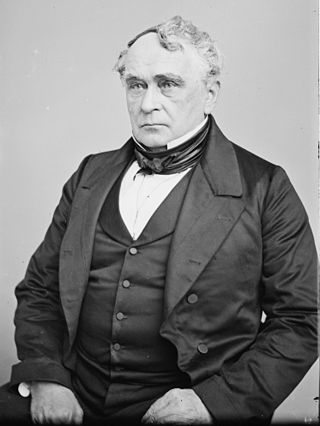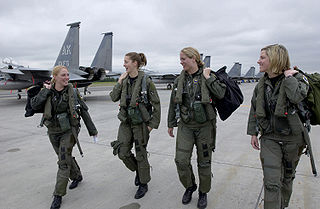War children are those born to a native parent and a parent belonging to a foreign military force. Having a child by a member of a belligerent force, throughout history and across cultures, is often considered a grave betrayal of social values. Commonly, the native parent is disowned by family, friends, and society at large. The term "war child" is most commonly used for children born during World War II and its aftermath, particularly in relation to children born to fathers in German occupying forces in northern Europe. In Norway, there were also Lebensborn children. The discrimination suffered by the native parent and child in the postwar period did not take into account widespread rapes by occupying forces, or the relationships women had to form in order to survive the war years.
Sexual misconduct is misconduct of a sexual nature which exists on a spectrum that may include a broad range of sexual behaviors considered unwelcome. This includes conduct considered inappropriate on an individual or societal basis of morality, sexual harassment and/or criminal sexual assault.
The Aberdeen Scandal was a military sexual assault scandal in 1996 at Aberdeen Proving Ground, a United States Army base in Maryland.

The Lieber Code was the military law that governed the wartime conduct of the Union Army by defining and describing command responsibility for war crimes and crimes against humanity; and the military responsibilities of the Union soldier fighting the American Civil War (1861–1864) against the Confederate States of America.

Sexual assault in the United States armed forces is an ongoing issue which has received extensive media coverage in the past. A 2012 Pentagon survey found that approximately 26,000 women and men were sexually assaulted that year; of those, only 3,374 cases were reported. In 2013, a new Pentagon report found that 5,061 troops reported cases of assault. Of the reported cases, only 484 cases went to trial; 376 resulted in convictions. Another investigation found that one in five women in the United States Air Force who were sexually assaulted by service members reported it, for one in 15 men.
Lesbian, gay, bisexual, transgender, and queer (LGBTQ) personnel are able to serve in the armed forces of some countries around the world: the vast majority of industrialized, Western countries including some South American countries such as Argentina and Chile in addition to South Africa, and Israel. The rights concerning intersex people are more vague.

Women have been serving in the military since ages in both combat and non-combat roles. Their inclusion in combat missions has increased in recent times with them often serving as pilots, mechanics, and infantry officers.

The entirety of Germany was militarily occupied by the Allies from the Berlin Declaration on 5 June 1945 to the establishment of West Germany on 23 May 1949. After Nazi Germany (1933–1945) of the German Reich (1871–1945) surrendered to the Allies and collapsed on 8 May 1945, the four countries representing the Allies asserted joint authority and sovereignty with the Allied Control Council (ACC) at the 1945 Berlin Declaration. At first, defining Allied-occupied Germany as all territories (1922–1938) of the former German Reich before the Nazi annexing of Austria and later at the 1945 Potsdam Conference of the Allies themselves, the Potsdam Agreement on 1 August decided the new eastern German border by giving Poland and the Soviet Union all regions of Germany east of the Oder–Neisse line and divided the remaining "Germany as a whole" into the four occupation zones for administrative purposes under the United States, the United Kingdom, France, and the Soviet Union. Although the three of Allies agreed about the occupation, division, and border of Germany in the 1943 Tehran Conference in Iran before, the four occupied zones located in Germany were only agreed by the three Allies at the February 1945 Yalta Conference.
Allied war crimes include both alleged and legally proven violations of the laws of war by the Allies of World War II against either civilians or military personnel of the Axis powers. At the end of World War II, many trials of Axis war criminals took place, most famously the Nuremberg Trials and Tokyo Trials. In Europe, these tribunals were set up under the authority of the London Charter, which only considered allegations of war crimes committed by people who acted in the interests of the Axis powers. Some war crimes involving Allied personnel were investigated by the Allied powers and led in some instances to courts-martial. Some incidents alleged by historians to have been crimes under the law of war in operation at the time were, for a variety of reasons, not investigated by the Allied powers during the war, or were investigated but not prosecuted.

During World War II, the German Wehrmacht committed systematic war crimes, including massacres, mass rape, looting, the exploitation of forced labor, the murder of three million Soviet prisoners of war, and participated in the extermination of Jews. While the Nazi Party's own SS forces was the organization most responsible for the genocidal killing of the Holocaust, the regular armed forces of the Wehrmacht committed many war crimes of their own, particularly on the Eastern Front in the war against the Soviet Union. According to a study by Alex J. Kay and David Stahel, the majority of the Wehrmacht soldiers deployed to the Soviet Union participated in war crimes.
A status offense is an action that is prohibited only to a certain class of people, and most often applied only to offenses committed by minors.

Wartime sexual violence is rape or other forms of sexual violence committed by combatants during armed conflict, war, or military occupation often as spoils of war, but sometimes, particularly in ethnic conflict, the phenomenon has broader sociological motives. Wartime sexual violence may also include gang rape and rape with objects. A war crime, it is distinguished from sexual harassment, sexual assaults and rape committed amongst troops in military service.

Military sociology is a subfield within sociology. It corresponds closely to C. Wright Mills's summons to connect the individual world to broader social structures. Military sociology aims toward the systematic study of the military as a social group rather than as a military organization. This highly specialized sub-discipline examines issues related to service personnel as a distinct group with coerced collective action based on shared interests linked to survival in vocation and combat, with purposes and values that are more defined and narrow than within civil society. Military sociology also concerns civil-military relations and interactions between other groups or governmental agencies.

As Allied troops entered and occupied German territory during the later stages of World War II, mass rapes of women took place both in connection with combat operations and during the subsequent occupation of Germany. Scholars agree that the majority of the rapes were committed by Soviet occupation troops. The wartime rapes were followed by decades of silence.

Americans in Germany or American Germans refers to the American population in Germany and their German-born descendants. According to Destatis, 300,000 - 400,000 Americans live in Germany. 200,000 of them in Rhineland-Palatinate.

There have been women in the United States Marine Corps since 1918, and women continue to serve in the Corps today. As of 2020, women make up 8.9% of total active duty Marines. The Marine Corps has the lowest percent of female service members of all of the U.S military branches. Women's presence in the Marine Corps first emerged in 1918 when they were permitted to do administrative work in an attempt to fill the spots of male Marines fighting overseas. It was not until 1948 that women were able to become a permanent part of the Corps with the passing of the Women's Armed Services Integration Act. However, even with the Integration Act, women were still banned from certain military occupation specialties. It was not until 2016 that Defense Secretary Ash Carter announced that all military occupations would be open to women without exception. As of 2018, there were 18 women serving in the Marine Corps combat arms. In December 2020, the Marine Corps Recruit Depot San Diego agreed to join the Marine Corps Recruit Depot Parris Island in accepting female recruits, with 60 female recruits starting their boot camp training at the San Diego depot in February 2021. 53 of these recruits would successfully graduate from boot camp in April 2021 and become Marines.

During World War II, the Barbarossa decree was one of the Wehrmacht criminal orders given on 13 May 1941, shortly before Operation Barbarossa, the invasion of the Soviet Union. The decree was laid out by Adolf Hitler during a high-level meeting with military officials on March 30, 1941, where he declared that war against the Soviets would be a war of extermination, in which both the political and intellectual elites of Russia would be eradicated by German forces, in order to ensure a long-lasting German victory. Hitler underlined that executions would not be a matter for military courts, but for the organised action of the military. The decree, issued by Field Marshal Keitel a few weeks before Operation Barbarossa, exempted punishable offenses committed by enemy civilians from the jurisdiction of military justice. Suspects were to be brought before an officer who would decide if they were to be shot. Prosecution of offenses against civilians by members of the Wehrmacht was decreed to be "not required" unless necessary for the maintenance of discipline.
The Israeli military consists of the Israel Defense Forces and the Israel Border Police, both of which engage in combat to further the nation's goals. Israel's military is one of the most accommodating in the world for LGBT individuals. The country allows homosexual, bisexual, and any other non-heterosexual men and women to participate openly, without policy-based discrimination. Transgender men and women can serve under their identified gender and receive gender affirming surgery. No official military policy prevents intersex individuals from serving, though they may be rejected based on medical concerns.
This overview shows the regulations regarding military service of non-heterosexuals around the world.
South Korean military laws and procedures discriminate against sexual minorities, or lesbian, gay, bisexual, transgender, and queer (LGBTQ+) individuals, who serve in the military. At the time of enlistment, recruits are categorized based on their physical and mental health. Sexual minorities can be marked as having a “mental handicap” or “personality disorder,” which determines their status and duties as personnel. They can also be institutionalized in a mental facility or be dishonorably discharged. Military personnel have reported experiencing harassment, violence, and forcible revealing of their sexual orientation and/or gender identity.












